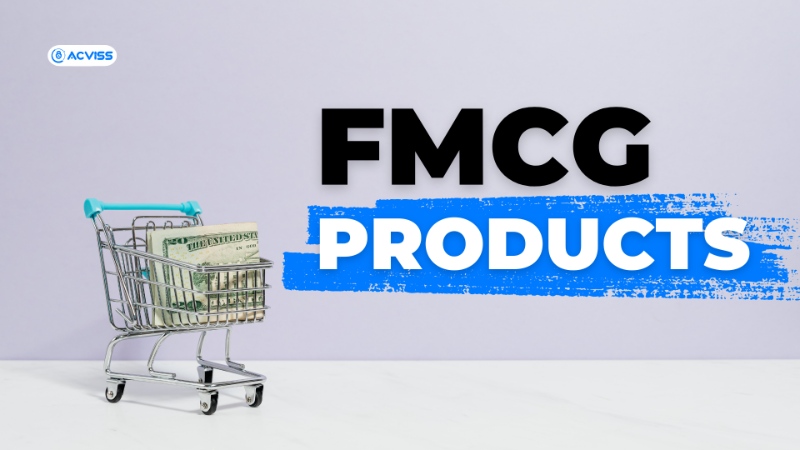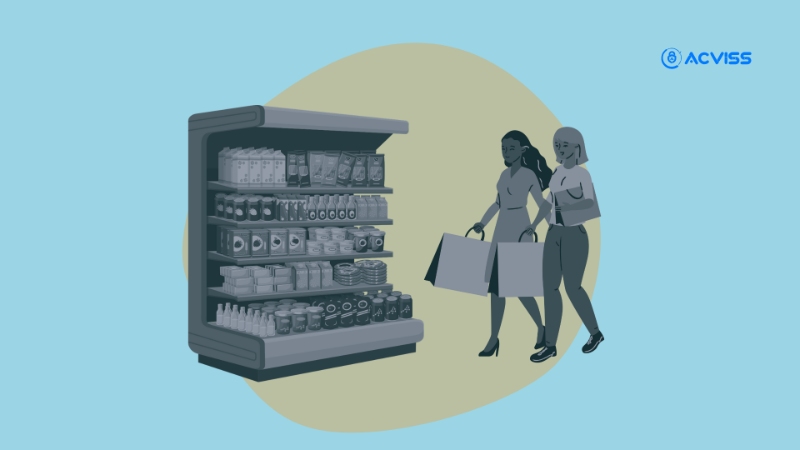Know Why FMCG Industries Faces The Worst Counterfeit Threats

It is impossible to survive a day without FMC goods. Fast Moving Consumer Goods (FMCG) range from food and beverages to personal care products, household items and more. We rely on these products for everyday needs, but what happens when counterfeit versions flood the market? It is estimated that counterfeit in FMCG ranges up to 28% of the total market, which is among the top products followed by automotive and pharmaceutical products. The rise of counterfeits in the FMCG industry is a concerning issue that has far-reaching consequences for consumers, businesses and the economy as a whole.
The Global Menace of Counterfeits
Counterfeiting is a global problem that affects economies, businesses and consumers worldwide. It is estimated that counterfeiting and piracy cost the global economy around $600 billion each year.
A survey conducted by CRISIL found that 89% of consumers buy counterfeit products due to the low price, extensive availability, peer pressure, desire to own luxury brand products and social status.
As more people rely on these products for daily use, the FMCG industry is one of the most affected sectors, with a significant rise in counterfeit FMCG products in recent years. Counterfeiters often target popular and well-known FMCG brands, including household names, due to their high demand and consumer trust.
Impact on Consumers
Counterfeit FMCG products pose serious risks to consumers. These may be categorised under two factors.
Quality
Counterfeit products are often produced using substandard materials and may not meet safety and regulatory standards. Fake food and beverages can contain harmful ingredients, posing health risks to consumers. Counterfeit personal care products, such as cosmetics and toiletries, can contain harmful substances that can cause skin reactions, allergies and other health issues. Moreover, fake household products and cleaning agents can be ineffective or even dangerous, leading to accidents or property damage.
Financial Loss
Consumers may also face financial losses when they unknowingly purchase counterfeit FMCG products. Counterfeits are often sold at lower prices, luring consumers with attractive discounts. However, they may end up paying for products that do not deliver the expected value or functionality. The health and safety risks these products can pose can cause further financial loss in the form of hospital treatment and medications. This can result in eroding consumer trust in the brand and affecting the brand's reputation.
Must read: Top 10 Most Counterfeited Food Products in 2024
Impact on Businesses
Counterfeiting also has severe consequences on businesses. Counterfeit FMCG products not only infringe upon the intellectual property rights of legitimate brands but also result in revenue losses. Counterfeits eat into the market share of genuine FMCG brands, affecting sales and profitability. The global cost of lost sales in the FMCG sector due to counterfeits is estimated at around $200 billion annually.
Counterfeits also damage the reputation and brand image of legitimate companies. Poor-quality counterfeit products can lead to negative customer experiences and reviews, resulting in a loss of customer trust and loyalty. The decline of brand reputation can be particularly damaging in today's age of social media and online reviews, where negative feedback can spread quickly and impact the perception of a brand across a wide audience.
Factors Contributing to Counterfeits in FMCG
Several factors contribute to the proliferation of counterfeit FMCG products in the market.
Supply Chains
One of the key factors is the growing complexity of global supply chains. FMCG companies often outsource production to multiple suppliers and manufacturers, making it challenging to monitor and control the entire supply chain. Counterfeiters take advantage of this complexity and infiltrate the supply chain to introduce fake products into the market.
E-commerce
Another factor is the rapid growth of e-commerce and online marketplaces. Counterfeiters use these platforms to sell counterfeit FMCG products, taking advantage of the anonymity and lack of stringent regulations. The rise of online shopping has made it easier for counterfeiters to reach consumers directly, without the need for a physical presence or a brick-and-mortar store, making it challenging to track and control the sale of fake products.
Regulations
Inadequate regulatory measures and weak enforcement of intellectual property rights in some countries have also contributed to the proliferation of counterfeit FMCG products. Counterfeiters take advantage of these gaps in the regulatory framework and exploit the loopholes to manufacture and sell fake products without fear of consequences.
Combating Counterfeits in FMCG
The battle against counterfeit FMCG products requires a multi-faceted approach involving various stakeholders, including businesses, government agencies, consumers and industry associations. Here are some strategies that can be employed to combat counterfeits in the FMCG industry:
1. Strengthening IPR protection
Governments and regulatory bodies should implement and enforce robust IPR protection measures to deter counterfeiters. This includes strict laws, regulations and penalties for manufacturing, selling and distributing counterfeit FMCG products.
2. Collaboration between businesses and law enforcement agencies.
This includes sharing information, conducting joint investigations and taking legal action against counterfeiters to disrupt their operations.
3. Implementing authentication technologies
FMCG companies should invest in advanced authentication technologies such as proprietary labels, barcodes and QR codes, to verify the authenticity of their products.
Certify by Acviss gives a unique identity to your products that are non-replicable and tamper-proof. This lets the customer scan and verify the products without breaking a sweat. But they are not confined to high-end products, FMCG products can leverage the system to keep counterfeiters' away from your dear products. This can help consumers and brands easily identify counterfeit products in the market and take quick action before things get worse.
4. Educating consumers
Creating awareness among consumers about the risks of counterfeit FMCG products and how to identify genuine products can play a crucial role in combating counterfeits. FMCG companies can engage in consumer education campaigns through social media, websites and other channels to educate consumers on spotting fake products and making informed purchasing decisions.
5. Monitoring and reporting
FMCG companies should proactively monitor the market for counterfeit products and report any suspected cases to the relevant authorities. This includes conducting regular market surveys, monitoring online marketplaces and collaborating with industry associations and anti-counterfeiting companies to share information and intelligence.
6. Building Brand Trust
Focus on building and maintaining a strong brand image and brand reputation to earn consumer trust. This includes investing in quality assurance measures, customer service and after-sales support to ensure consumers have a positive experience with genuine products.

In Short
Counterfeit FMCG products pose a significant threat to consumers, businesses and the economy as a whole. Combating them requires a collaborative effort involving businesses, governments, consumers and industry associations. FMCG companies can take proactive steps to combat counterfeits and safeguard consumer interests. It is crucial to raise awareness about the risks of counterfeit products and empower consumers to make informed purchasing decisions.
Wondering where to start?Get in touch with us today and learn how technological solutions can increase awareness and effectively deter counterfeits in the market. We at Acviss have successfully protected over 2 billion products and 80-plus brands globally. Join the rank of industry leaders and secure your brand and customers today.
